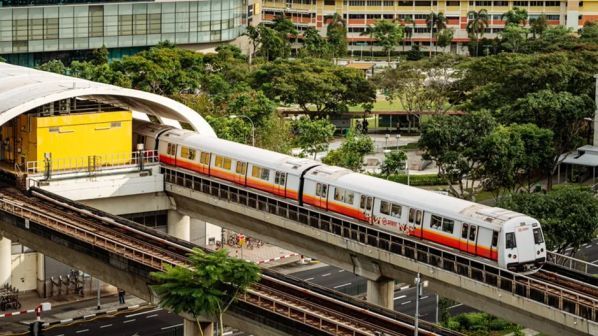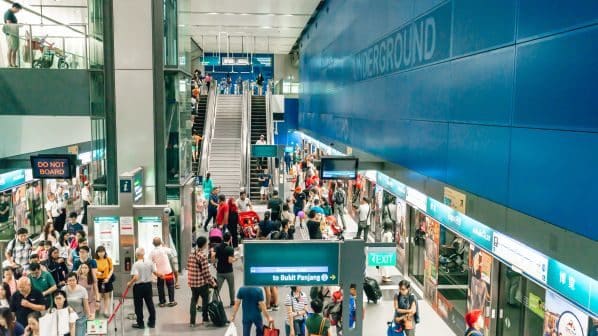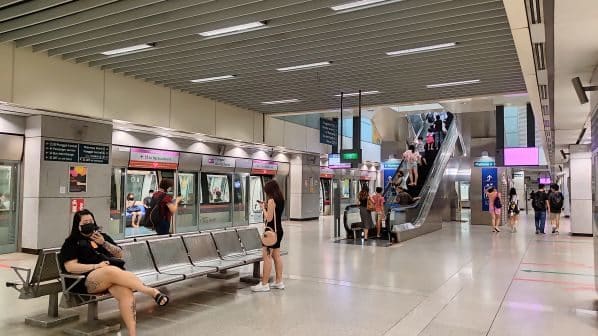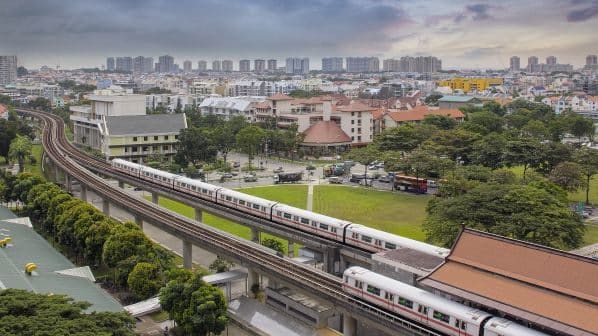SINGAPORE’s minister for transport, Mr S Iswaran, has launched a Land Transport Industry Transformation Map (ITM) developed by the Land Transport Authority (LTA) in close collaboration with industry and union partners, which aims to deliver an upturn in the availability of the skills and expertise necessary to deliver the country’s long-term ambitions for its rail network.
Under a revised structure for governing Singapore’s metro network LTA is playing a central role as asset owner and overseer of new network construction and upgrades while providing a long-term framework for boosting network utilisation and reliability.
The ITM’s three strategic goals are to provide a future-ready workforce and a sustainable and resilient land transport sector through innovation and technology.
LTA says the land transport industry is a key pillar in enabling the connectivity of the island nation’s economy and is only able to achieve this through the efforts of its more than 100,000 rail and road transport workers, including its railway engineers, station managers and customer service officers.
Since 2018, around 1000 new jobs have been created in the rail sector and about 800 will be created as the network expands. Even more jobs will be created with the development of the Jurong Region Line, due to open in stages from 2027-2029, and Cross Island Line (CRL) also due to open in stages from 2030-2032. Construction of CRL Phase 1 began in January this year.
Overall, the public transport sector workforce is expected to grow by around 4% by 2025, from 22,000 workers currently.
There is also a realisation that the nature of job roles will change with advances in technology and digitalisation. Under the refreshed ITM, LTA will work with National Transport Workers’ Union (NTWU) and public transport operators to upskill rail workers to use new and emerging technologies such as data and statistical analytics, as well as condition monitoring, to increase efficiency and productivity.
“Talent development and skills upgrading for workers remain key to the land transport sector’s transformation and resilience,” says senior minister of state, ministry of transport and co-chair of the Future Economy Council (FEC) connectivity cluster, Mr Chee Hong Tat. “LTA is partnering with the public transport operators and unions to equip workers with the skills to meet new challenges so that our workforce remains productive and future ready.”
Regarding innovation and technology, the LTA says it will adopt an open innovation approach towards industry and academic partners to help tap into ideas that will enhance the efficiency of Singapore’s land transport system - including making data more widely accessible.
“In September 2022, LTA launched the Land Transport Innovation Portal as a one-stop platform for all innovation matters to streamline outreach to industry partners,” LTA says. “The portal shares operational problem statements from LTA and information on upcoming innovation events to help partners better understand LTA’s needs and discover opportunities for co-innovation and collaboration.”
For detailed data on metro projects in Asia and around the world, subscribe to IRJ Pro.





